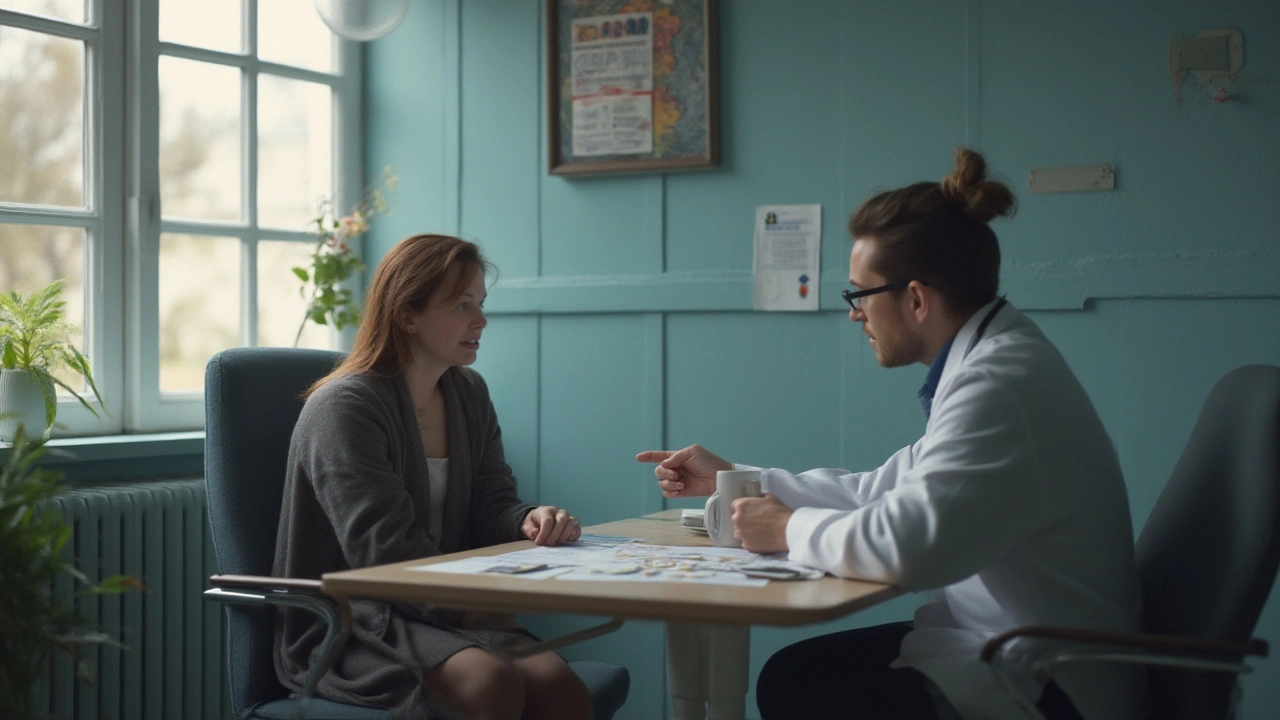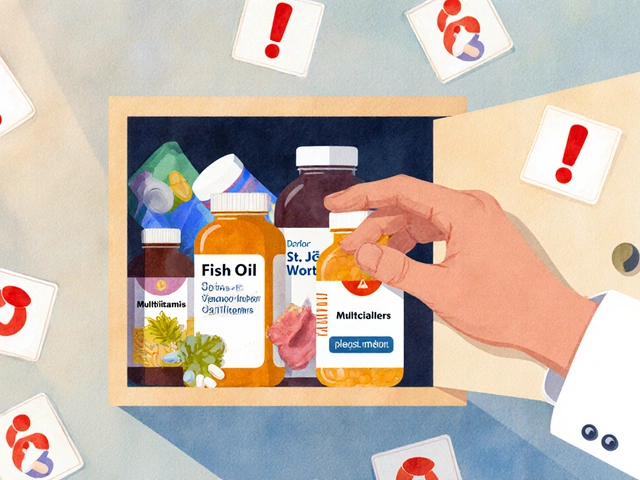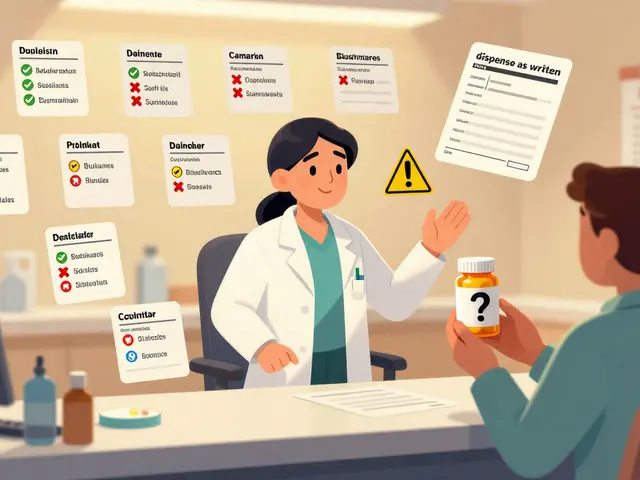People expect new antidepressants to work miracles. If you switch to Trintellix (vortioxetine), with its shiny clinical trial numbers and cheerful TV ads, you probably hoped for the best. But sometimes, reality bites: the pills don’t bring enough relief. Those stubborn symptoms stick around. Or maybe you deal with weird side effects—brain fog, gut issues, restless sleep—that make every day harder. It’s normal to feel frustrated, even a little lost. But you’re not stuck. There are more options—both medical and non-medical—than most folks realize. The trick is knowing what actually works.
Why Trintellix Comes Up Short for Some
Trintellix is a pretty new kid on the antidepressant block. Doctors like that it acts on several brain receptors—not just serotonin. In theory, this should mean smoother mood, less anhedonia, maybe even sharper thinking. Good theory, but individual bodies tell a messier story. Real-world studies show about half of patients get the benefit they want after twelve weeks. The other half either can’t handle the side effects—think nausea, dry mouth, dizziness, or sexual dysfunction—or just don’t feel much better.
It’s not your imagination: these numbers aren’t great compared to some older antidepressants. Plus, psychiatrists can’t guess which person will respond, and which will draw the short straw of treatment-resistant depression. There’s no custom-tailored solution yet, despite all our advances. What gives? Turns out, depression’s roots spread deeper than neurotransmitters. Genetics, chronic stress, inflammation, and life circumstances all add fuel to the fire.
It’s also common for Trintellix side effects to feel mild at first—then get worse with time as the dose goes up. Or your energy improves just enough to let anxiety come roaring in. Many people end up asking: where do I even start when Trintellix isn’t working for me?
Medication Alternatives: What Else Is Out There?
If your psychiatrist’s first suggestion is “let’s try a different med,” that’s not laziness. It’s because response to depression drugs is unpredictable, and there’s no penalty for switching around. Here are some of the main categories you might hear about:
- SSRIs (like sertraline, fluoxetine, or escitalopram): Often less stimulating than newer options. Good for brain fog and anxiety, but sexual side effects are common. Useful if you want reliable, steady dosing and lots of long-term safety data.
- SNRIs (such as venlafaxine or duloxetine): These pull double-duty by acting on both serotonin and norepinephrine. Often prescribed if you also have chronic pain or extreme fatigue. They can raise blood pressure or cause withdrawal if stopped suddenly, so count on regular follow-ups.
- Bupropion (Wellbutrin): The energizing one. It skips serotonin and focuses on dopamine/norepinephrine, which means fewer sexual side effects. Good for “slowed down” depression and low motivation, but may aggravate anxiety. Not ideal if you have seizures or an eating disorder.
- Mirtazapine: A sedating antidepressant, so it’s popular if insomnia is ruining your mood. It can trigger appetite gain and sometimes grogginess.
- MAOIs: These old-school drugs can work for tough, long-term cases. They need strict food restrictions and medication checks to avoid dangerous reactions.
- Other options: Newer or less conventional meds—like agomelatine, vortioxetine combos, or even low-dose antipsychotics—are showing promise in research. And for severe, fast-moving depressions, intravenous ketamine and esketamine nasal sprays are emerging as rapid, if expensive, interventions.
Doctors sometimes combine medications to squeeze out a better response when depression is stubborn. For example, a low dose of Wellbutrin can offset the sexual side effects of an SSRI. Or, a stimulant like modafinil might get added if brain fog is severe. There is no shame in needing two antidepressants. The brain is complex—sometimes you need more than one tool.
Not sure if you need a med switch, a dose change, or an add-on strategy? There’s a handy summary of different trintellix alternatives that breaks down options in plain language—worth skimming before your next doctor chat.

Beyond Pills: Non-Medication Fixes with Real Backing
After years of hearing “eat well and exercise more,” it’s easy to dismiss non-drug strategies. But don’t roll your eyes—some of these hacks work much better than most people think, especially when combined with meds:
- Psychoeducation and Cognitive Behavioral Therapy (CBT): The data for CBT is solid: it can be as effective as medication, especially for mild to moderate depression. CBT helps you spot the loops of negative thinking and push back against them. In Sydney, you can access online CBT funded by Medicare, or group sessions for less social isolation.
- Behavioral Activation: This is not just “hustle harder.” It’s about tiny, scheduled rewards—like committing to a five-minute walk or talking to a mate each day—until your motivation snowballs. Behavioral activation consistently outperforms waiting for mood to magically improve.
- Mindfulness and Acceptance therapies: These aren’t magical cures, but they help train your attention away from constant ruminating. Randomized controlled trials show mindfulness app users see bigger mood gains after six weeks than those who just use reading materials.
- Exercise that's fun: Forget the treadmill drudgery. Playing basketball, bushwalking, or surfing spikes dopamine and endorphins in ways regular running doesn’t. If 45 minutes of high-energy movement feels impossible, just start with 10 minutes. Every little burst counts.
- Light therapy: Particularly if you’re groggy in the morning or the winter blues hit you hard, a daily morning lightbox can help reset your circadian rhythm. No need to spend tons—many reputable lightboxes now go for under $100 AUD online.
- Diet tweaks that matter: There’s a myth that “healthy eating” alone cures depression. But certain nutrients—omega-3s, vitamin D, magnesium, and zinc—really do have supporting evidence. A 2023 study out of Melbourne showed adults who increased oily fish intake and leafy greens by just two servings a week cut their depression scores by a quarter after eight weeks. Not earth-shattering, but real progress.
- Social connections—yes, even when you don’t feel like it: Isolation and loneliness fuel depression, especially in men. Reaching out to a mate with a simple text or showing up for a backyard BBQ—even if you’re quiet—can nudge your mood in the right direction.
- Alcohol reduction: Hard truth—booze is a downer. Regular drinking wrecks sleep and wrecks brain chemistry. Cutting back, even by a couple of beers a week, can chip away at those groggy, fed-up feelings.
For some, a team-based approach—meds plus therapy plus lifestyle tweaks—works best. Don’t expect instant results, but track changes week by week. Small shifts genuinely stack up over months.
Practical Tips: When It’s Time to Change Course
First, don’t go off Trintellix (or any antidepressant) cold-turkey. Even if it’s causing side effects, fast withdrawal can trigger brain zaps, rebound depression, and sleep chaos. Instead, talk with your doctor about a gradual taper. Have a checklist: are you having new or worse symptoms since starting vortioxetine? Have you given the current dose a full 6–8 weeks? Are side effects intolerable, or just annoying? Pinning down these answers helps you and your psychiatrist make a smarter plan.
Track your mood every day for a few weeks—a note on your phone, or just a smiley/sad face calendar works. If you notice no lift at all after six weeks at a steady dose, it’s time to talk about a switch.
Ask your doctor if your dose is high enough or if a mix-and-match approach might suit you better. Some people get the best results from a lower antidepressant dose plus extra therapy or light therapy.
If depression runs in your family, or if you’ve had several failed med tries, you could bring up genetic testing. Pharmacogenetic tests (like GeneSight) aren’t magic, but they sometimes predict which drugs will suit your metabolism—or which side effects you’re more likely to get.
If you’ve been on several medicines with little effect, ask about non-medicine treatments like ketamine infusions or TMS (Transcranial Magnetic Stimulation). Yes, these can be pricey or tricky to access, but they’re changing the game for hard-to-treat depression in Australia.
And—this matters—don’t forget to check other explanations. Some thyroid, vitamin, or hormone problems copy depression symptoms. Get checked (a simple blood test covers the basics).
Knowing your true choices is half the battle. Depression is unpredictable and, let’s be real, a bit stubborn. Don’t judge yourself for having to try several approaches. The goal isn’t perfection—it’s progress. If Trintellix isn’t your answer, plenty of roads still lead forward.





July 24, 2025 AT 00:28 AM
Okay but can we just talk about how Trintellix made me feel like a zombie who forgot how to blink? I was on it for 10 weeks-nausea, brain fog so thick I couldn’t remember my own phone password, and sex drive? Gone. Like, permanently. My therapist said ‘give it time’-no. No, I’m done giving it time. I switched to Wellbutrin and suddenly I could feel my toes again. Also, I started walking my dog at sunrise. Not magic. Just… human. And yes, I cried the first time I laughed without forcing it. You’re not broken. The med was just wrong.
July 25, 2025 AT 02:42 AM
Light therapy changed my life. No cap. Got a $70 Amazon one, sat with it while drinking coffee every morning. No more 11am nap spiral. I used to think it was ‘just seasonal’-turns out it was depression wearing a winter coat. Also, stopped drinking on weekdays. Two beers a night added up to a month of foggy dread. Didn’t need a PhD to figure that out. Just needed to stop lying to myself.
July 25, 2025 AT 03:40 AM
I want to say this gently, because I know how heavy this feels: you’re not failing because one med didn’t work. Depression isn’t a puzzle with one missing piece-it’s a storm with a thousand raindrops, and sometimes you need to catch them all. CBT isn’t ‘just talking.’ It’s rewiring your brain’s autopilot. And exercise? It’s not about fitness. It’s about proving to yourself that you can still move, even when your soul feels glued to the floor. Start with one deep breath. Then one step. Then one text to someone who gets it. Progress isn’t linear. It’s messy. But it’s real. And you’re already doing it by being here, reading this. That counts.
July 25, 2025 AT 21:52 PM
Pharmacogenetic testing shows moderate predictive validity for SSRI metabolism but limited utility for vortioxetine response. Clinical guidelines still recommend trial-and-error as first-line due to insufficient evidence for routine use. TMS and ketamine remain second-line due to cost and access barriers. Dietary interventions show small effect sizes (Cohen’s d = 0.3–0.4) in RCTs. Behavioral activation has the strongest evidence for mild-moderate depression (NNT = 4).
July 27, 2025 AT 00:04 AM
Ugh, I’m so sick of people acting like ‘just walk your dog’ is a cure. I’ve been walking for 2 years. My dog’s got more energy than me. Trintellix didn’t work. Neither did sertraline. Neither did the damn lightbox. I’m on venlafaxine now, and yeah, it’s working-but I had to fight my doctor for 6 months to even try it. And I’m lucky. I have insurance. I have time. What about people who work two jobs and can’t afford therapy? Stop romanticizing ‘lifestyle changes.’ Systemic support isn’t optional. It’s the bare minimum.
July 27, 2025 AT 07:45 AM
Thank you for this. As a clinician, I see so many patients who’ve been cycled through SSRIs like they’re interchangeable socks. The reality is: depression is a systems-level dysregulation. Neurotransmitters are just one node. HPA axis dysfunction, gut-brain axis inflammation, circadian disruption-they’re all playing a role. That’s why monotherapy often fails. I advocate for a biopsychosocial triad: pharmacotherapy + CBT + environmental modification. For treatment-resistant cases, I now routinely screen for B12, ferritin, TSH, and cortisol rhythms. And yes, I’ve seen patients go from suicidal ideation to stable remission with ketamine + weekly DBT. It’s not a panacea. But it’s hope. And hope is the first antidepressant.